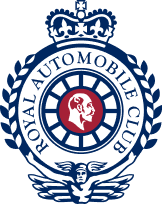

One of the most prestigious awards in British engineering – the Royal Automobile Club’s Dewar Trophy – has been awarded to JCB for the development of its ABH2 hydrogen fuelled motor.
Presented to the Club in 1904 by Sir Thomas Dewar MP, the Trophy is awarded at the discretion of the Technical Committee – and only in years when its panel of experts believes there are contenders of sufficient merit. Since 1957, the Trophy has been presented in recognition of ‘an outstanding British technical achievement in the automotive field during the preceding year’, and has subsequently been awarded to the likes of Cosworth legend Keith Duckworth, Dunlop, Jaguar, Ford and Gordon Murray Design.
This is the third time that JCB has been presented with the Dewar Trophy. In 2007, it was awarded in honour of the JCB Dieselmax team setting a diesel-powered Land Speed Record of 350.092mph at the Bonneville Salt Flats. Then, in 2019 – the most recent year in which the Trophy was awarded – JCB was recognised once again, this time for the development and introduction into the market of the 19C-1E electric mini excavator.
And now the company has developed a high performance, purpose-engineered zero CO² hydrogen fuel motor, emitting just steam from the tail pipe. The engine has been designed after a personal challenge to JCB’s engineers from company Chairman Lord Bamford, who instigated JCB’s initial move into engine production in 2004. The newly-designed hydrogen motor harnesses JCB’s existing expertise and supply chain infrastructure, which means it can be put into production quickly. The solution is also much better suited to JCB’s type of heavy equipment than battery power and is also considerably less expensive than batteries and fuel cells.
The ground-breaking engine produces zero CO2 emissions but delivers the same performance as JCB’s existing Dieselmax engine. After development work had been carried out on a prototype backhoe loader with the hydrogen engine installed, a second machine – a Loadall telescopic handler – was unveiled on 18 October 2021 at an event that was attended by Prime Minister Boris Johnson. The company is investing £100 million in the project and is recruiting 50 extra engineers with the aim of delivering the first hydrogen-powered machines to customers by the end of 2022.
John Wood MBE, Chairman of the Dewar Technical Committee, said: ‘JCB has been a pioneer in terms of powertrain development since it started building its own engines in 2004. That ethos has continued with its latest hydrogen-fuelled engines, which are an inspiring combination of current expertise and next-generation technology – and could even be developed for use beyond the construction industry. It’s a project that epitomises everything that the Dewar Trophy stands for.’
Lord Bamford, Chairman of JCB, said: ‘We’re extremely proud that the Royal Automobile Club has chosen to present JCB with the Dewar Trophy for the third time. We’ve invested heavily in alternatives to fossil fuels, including battery-electric and hydrogen fuel cells, but the fact that our hydrogen-fuelled piston engines can be put into production relatively quickly is something that’s vital in the current climate emergency. It’s an important and pioneering step towards a zero-carbon future, and testament to the amazing abilities of our British engineers.’


